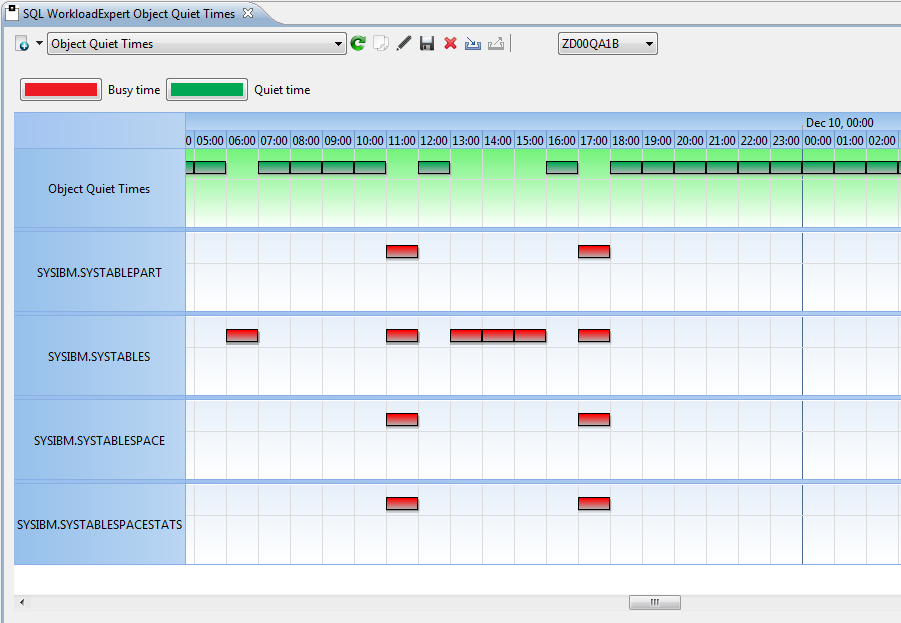Do you have an idea when tables are in use?
Ahhh! Wouldn’t it be great if we all had just quiet times? Sadly we never have time for anything these days, let alone for peace and quiet!
The quiet before the Storm?
What I mean by Quiet Times is, however, different: it is the time when a given table, or set of tables, is not in use. This is very interesting to find out, especially when you are doing data definition changes (DDL). For example: you are given the task of adding some columns to some tables – naturally these days you have no idea who or what is actually using the tables, and absolutely no idea *when* they are being used.
What do you do?
Well, all you can do is schedule the change for early one morning and then quickly push the ALTERs and the REORGs through – hoping not to collide with any users of the data.
Guessing when tables are in use can be dangerous
This is all a bit haphazard and dangerous! Wouldn’t it be better if you could look at a calendar and see that this table is only used Mo – Th from 09:00 – 16:00 thus giving you a really big hint that Friday morning is a better bet?
Capture your DB2 SQL Workload & project the results into a Calendar view
Using the new and enhanced IFCIDs in DB2 10 you can now do this! Capture your workload and analyze when table(s) are being used and project the results into a Calendar view:

Gives this style Output:

Handy huh?
Video (3 min.) – Presentation
– You can drag the dates back and forth to validate the assumptions of a period of time, and then you can happily do your ALTERs and REORGs during the day.
– Apart from not having to get up early, the added bonus is that you get to learn more about who uses the tables!
Of course this system is *not* a crystal ball! It is just showing historical usage. Who knows what the future holds?
Would this style of output be useful for you? Could you imagine this helping you in your day-to-day Tasks?
As usual any queries or criticism gladly accepted!
TTFN,
Roy Boxwell

